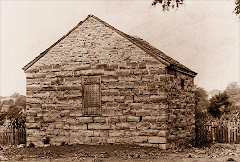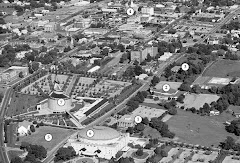 We all know that on Christmas Day we celebrate the birth of Jesus of Nazareth, who is considered to be the ultimate Savior and Redeemer by Christian believers. But there are a myriad of myths and traditions associated with Christmas, many of which trace their origins beyond Christianity. For example there is ample speculation secularly as well as among various Christian denominations, that Christ was not born on December 25th. Instead of a more likely spring birthday, December 25th was likely chosen for celebration as a melding between the expanding old world Christian faith, paganism, Winter Solstice and popular Roman festivals of the time.
We all know that on Christmas Day we celebrate the birth of Jesus of Nazareth, who is considered to be the ultimate Savior and Redeemer by Christian believers. But there are a myriad of myths and traditions associated with Christmas, many of which trace their origins beyond Christianity. For example there is ample speculation secularly as well as among various Christian denominations, that Christ was not born on December 25th. Instead of a more likely spring birthday, December 25th was likely chosen for celebration as a melding between the expanding old world Christian faith, paganism, Winter Solstice and popular Roman festivals of the time.We also know of many characters that usher in Christmas festivities. We sometimes hear of Father Christmas, which is a relic of the Germanic Pagan god Odin. The 1930’s movie A Miracle on 34th Street popularized the name of Kris Kringle, which is translated loosely in German to Christ Child. We know of the third century St. Nicholas of Myra who was the son of wealthy parents in what is now modern day Turkey. His parents died while he was still young and Nicholas used his entire inheritance to serve the poor and needy, secretly giving gifts and often hiding coins in the shoes of the downtrodden. Later, while still young, he was named as Bishop of Myra and his image is often depicted in long Ecclesiastical robes, perhaps a similar look to another crimson suit. Under the Roman Emperor Diocletian who ruthlessly persecuted Christians, Nicholas was exiled and imprisoned. We also have the most popular version of Santa Claus, a kind of amalgam of all these other characters from history and myth.
The historical root of much of our cultural Christmas celebration is confused and rooted in non-Christian traditions. We often yearn for the good ole days when the celebration of Christmas was really centered on the birth of Christ but ironically even the oldest of the good ole days were not really Christ centered either. It is also interesting to note that the original Puritan settlers in America made the celebration of Christmas illegal precisely because it did not represent the true worship of the Christ child.
While there is much confusion about the history, myth and traditions surrounding Christmas there should be no confusion regarding the Biblical account of Christ’s birth as accounted in Luke 2. It is not a bedtime story or a myth. It is truth. It really happened as miraculously as portrayed in the Bible. As we go throughout the Christmas season it is fun to think of Santa or even revere good men of history like St. Nicholas of Myra, but it is crucial that we maintain our focus on the worship of Jesus the Christ. His birth was certainly a miracle of our Heavenly Father’s love in blessing the world with a Savior, and Christ’s atoning mission is a further miracle of love and compassion. Perhaps we should attempt to find ways to express our love and compassion to the Christ by serving our family, friends and neighbors, as well as the needy around us and not pay as much attention to the cultural traditions surrounding us.

























